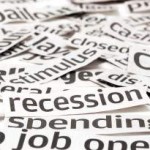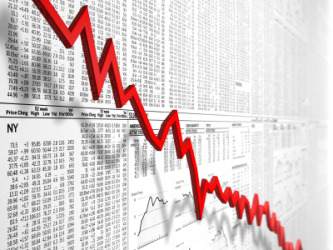Posts Tagged ‘crisis’

As businesses operate within economic atmosphere of the country, any effect on the economy overall results in changing businesses. Gray et al (2007) state that recession is where incomes and output start to fall. Businesses might experience a fall in demand for their products and a decline in profit. This may further trigger rising unemployment as most of the companies start laying off their workers. They further indicate that it is all a business cycle as everything in the economy gets affected because of one being related to another. The recession basically affected all countries either directly or indirectly depending on the trade openness of the country. However, there were some countries that did not get affected by recession and Poland is a good example for that. Because Poland is the only country in EU that avoided a decline in GDP, it created the most growth in GDP in 2009 (Wikipedia 2009). According to analysts, the reason for countries that did not enter into recession is mainly because of the following factors: Extremely low levels of bank lending A relatively very small mortgage market Lack of over-dependence on a single export sector A tradition of government fiscal responsibility A relatively large internal market Low labour costs attracting continued foreign direct investment Riley (2009) states that open economies, which are highly trade dependent and export only a small range of products to few markets, are affected most by the trade transmission mechanism. This helps to understand the wider economic and social effects of the 2009 global downturn. Riley (2009) also further mentions the following influences of recession on developing countries: 1. Foreign Direct Investment declines resulting in reductions in access to loans from banks. However, some developing countries have their own wealth funds to spend in this kind of cases. This leaves businesses…

Global economic recessions tend to have following negative implications for big companies: Revenue and profits decline Recession caused some businesses to go out of businesses most of them suffered lowered levels of sales and profit. This may negatively affect on both short term survival (less cash) and long term survival of the company. And moreover, the recession has repercussions still on most businesses as their lost revenue is slowing them down now from predetermined goals. Manufacturer cuts back on hiring new employees As most of the manufacturers try to save some costs on labour, this adversely affects on the companies overall efficiency or the businesses may even lose skilled workforce who are hard to employ in non-recession periods. Moreover, as every business cuts labour force, the unemployment rates rise within the country causing huge number of employees losing their vital skills due to employment gaps. Manufacturer may stop buying new equipment This may inpact on the long term plans of the company as it may spend on capital expenditure. Another effect of this one could be low quality of goods or not safe previous equipment to work with. Ceases research and development The large companies like J&J or GSK mainly survive due their extended research facilities. Due to recession they may not be able to secure the future market share in the market place with their newly developed products. Stop new product rollouts Moreover, businesses may also feel insecure to rollout their new products because of the recession and low levels of demands. Therefore, innovative companies may suffer more as their share of revenue comes from introduces the new product to the market place. Expenditure for marketing and advertising may be cut Due to declined revenue, the companies may not be able to afford to…
